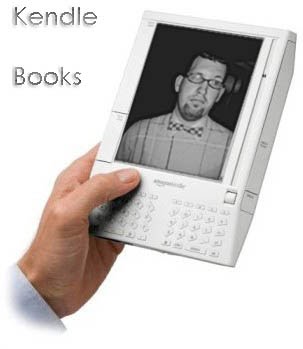I've learned over the years to value the act of reading and listening to people with interpretations of the Bible and/or Christian faith that diverge from my own. I always knew it in theory, but the first time it really sunk in was when I read Jack Miles' Pulitzer Prize-winning God: A Biography. I cannot overstate the positive effect that Miles' book had on my faith, my theology, and my relationship with God, even though the doctrines that I hold to won't allow me to agree with most of his readings of the Old Testament. The same goes for his follow-up to that book, Christ: A Crisis in the Life of God. A newly released book by Mary Gordon has turned out to be an equally enriching experience.
In the introduction to Reading Jesus: A Writer's Encounter with the Gospel, Gordon narrates the tale of how, while sitting in a taxi cab and mentally arguing with a preacher on the radio, she had the sudden realization that she had never read the Gospels. That very same day, she rushed to her hotel, opened a Bible to the first page of Matthew, and didn't stop until she had read the last page of John. After reading the books and subsequently studying them with the aid of some study bibles and other books, she wrote this book to share her experiences.
While Gordon's readings of Scripture may not hold water in any serious theological discussions, she is the first to admit that. She makes the dishearteningly accurate observation that her original reading, void of study helps, commentaries, theologies, etc., is the same kind of reading shared by the majority of people who have read or ever will read the Gospels. The overwhelming majority of the world's population will never use a study bible or any such thing. A large percentage of that majority will never even have access to those kinds of materials. So, even though Gordon herself is, of course, well-educated, she reads with a sort of willful ignorance (as much as is possible for someone with her background anyway), and she does so for pragmatic reasons.
For precisely that reason, Gordon's book can serve as a different kind of study aid to those fortunate few, like myself, who enjoy nearly unlimited access to bible study resources. Reading Jesus through Gordon's intelligent-yet-somewhat-Biblically-illiterate eyes is a educational experience precisely because of her lack of theological expertise. It is also a pleasurable experience because she demonstrates no open hostility towards Jesus or the basic tenets of Christian faith, even as she struggles to believe some of the really important ones, such as the resurrection. (She is a devout--though somewhat unorthodox--Catholic.) It is an important experience to have for the same reason that it is important to read the Gospels through anyone's eyes: in doing so, we know Jesus better. How so, you ask? While we may begin such a journey by trying to see him through someone else's eyes, what we ultimately end up doing is seeing others through his eyes.
Kendle Books
I love to read, and I often get asked what I'm reading and for recommendations, so I decided to blog about everything I read. Hope you enjoy it.
Sunday, November 8, 2009
Tuesday, October 20, 2009
Einstein: His Life and Universe by Walter Isaacson
 This recent biography of the uber-famous, iconic, celebri-genius is one of many, but is widely considered by Einstein enthusiasts as the best one out there. Weighing in at just over 700 pages, it's probably a little long for more casual readers, but it's well worth the time for anyone willing to invest a month or two into conversing with the most brilliant mind of the 20th century.
This recent biography of the uber-famous, iconic, celebri-genius is one of many, but is widely considered by Einstein enthusiasts as the best one out there. Weighing in at just over 700 pages, it's probably a little long for more casual readers, but it's well worth the time for anyone willing to invest a month or two into conversing with the most brilliant mind of the 20th century. Walter Isaacson is a talented writer, and he tells and organizes the story of Einstein's life in the most engaging way possible. I was particularly impressed with how well Isaacson is able to explain the significance of Einstein's work. The first half of the book can serve as an excellent introduction to the general concepts behind ideas like non-Euclidean geometry and special relativity. (As for general relativity, that's a little more complex, and even Isaacson is short on words, except to tell funny stories about the struggles Einstein had in attempting to communicate the idea in a way that the general public could understand).
While the first half of the book focuses on Einstein the scientist, the second half is all about Einstein the philosopher/philanthropist/mega-celebrity. I had a brief conversation recently with one of the curators at the Lafayette Science Museum, and he said he found this second half of the book much more interesting, which is funny because I was much more intrigued by the first half. He made a good point though, which is that Einstein was a much more likeable person during the latter half of his life. Many of the decisions he made in his personal life were certainly questionable, and sometimes outright bizarre.
Whether you're looking for a good summary of Einstein's contributions to science, or simply some great reading about one of the most fascinating characters of recent history, pick up this book. But be forewarned: you may learn some discouraging things about this frequently-idolized man. Regardless, I love books that make worthy contributions to the fight against the ignorance of all things science that often seems so pervasive in our country. Einsteins ideas are extremely important, and not just to scientists. Educate yourself, and read a great story at the same time.
Subscribe to:
Posts (Atom)
